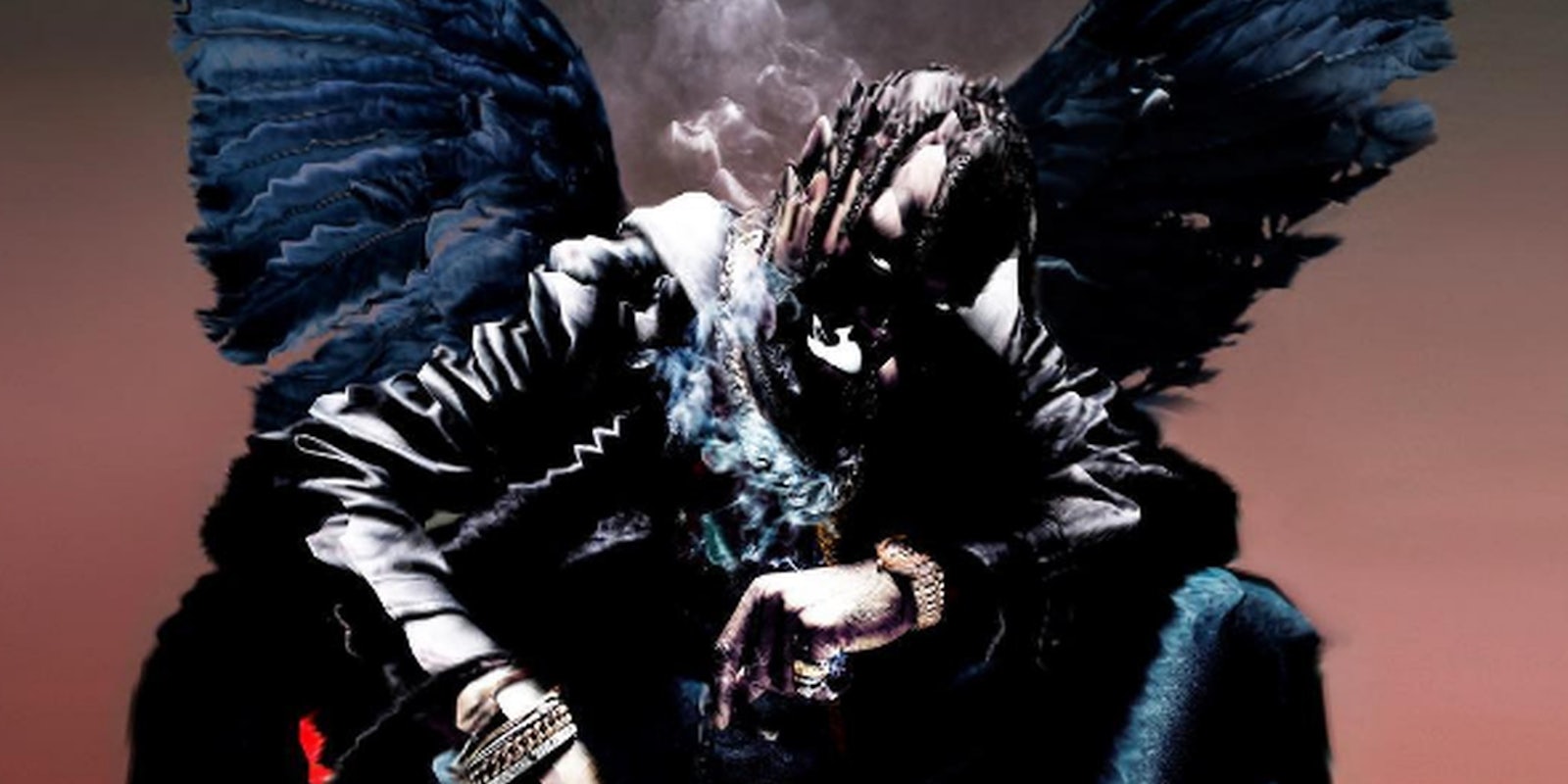The title of 24-year-old rapper Travis Scott’s new album comes from a line in his song, “Pick Up the Phone.” It’s easily the best track on the project, released to Apple Music on Friday, which is the young, occasional Kanye West protege’s second studio release. Yet the phrase “birds in the trap sing McKnight” isn’t sung by Scott in the song—nor does he have much of an imprint on it at all.
Only the most hardcore Scott fans would be able to name him as the titular artist. I had no idea Scott was even on the song until I heard the album title was announced, which was at least a month after “Pick Up the Phone” hit the web.
Scott is probably most revered for crediting himself more than the liner notes do for the sound palette and lyrical inspiration of the distortion and debauchery-filled 2013 Kanye West album, Yeezus. Scott’s debut album, however, and also the two mixtapes preceding it, sound less like the scraps left on the studio floor after West took the best melodies and chord progressions, and more like well-produced fan art. After all, the longtime legendary producer (and frequent West collaborator) Mike Dean was everywhere.
Yeezus was kind of like a professional DJ alternately sending half the crowd toward the exits every 30 seconds. Last year’s Rodeo sounded like a dude with a Tech N9ne goatee came to a party as it was winding down, and put his iPod on shuffle. There are some good and memorable parts, but due to Scott’s talent for lazily shape shifting he’s basically never better than the artist he’s trying to personify.
That’s why Scott has gotten washed on literally every song he’s ever done with anyone else.
Birds In the Trap Sing McKnight has 16 guest verses on 14 songs. Most of the other musical flaws Scott has had in the past—his tendency to sound like other people and disappear in songs, wandering songs in need of an edit (despite his claims that he “cut straight to the meat”), and his lovingly corny lyrics—are all present.
Besides awkward references (“UFC, I’m tapping to my old ways”) and embarrassing ad-libs (“hula hoop!”), the lyrics have a whole lot of superfluous drugs and guns, as cliched and overused as that description is in rap music.
There’s more than a few instances of Scott sounding exactly like West, despite his supposed mentor being noticeably absent from BTSM. Other times, like on “Through the Late Night,” Scott gives up most of the song to Kid Cudi before then singing a significant amount of Cudi’s biggest hit, “Day n Night.” It would be one thing if the album featured all these other artists and allowed for Scott to work on the beats, but he’s only credited as a producer on one song. Here, he’s basically DJ Khaled, flexing his Rolodex and claiming credit for the collective statement.
On “Goosebumps,” he sing-raps in a fairly conversational tone while hip-hop’s mercenary savior Kendrick Lamar raps in circles and parallelograms similar to some of the same high-pitched flows he used on his outtakes project. On “Wonderful,” Scott sounds like one R&B singer, Ty Dolla $ign, while singing with another, the Weeknd. Unfortunately songs with that playful dynamic—or even just ones with a little bounce like “Outside” and “Guidance”—are few and far between on BTSM.
Scott is closely associated with a certain Yeezus-like dark and discordant aesthetic and the status of a self-proclaimed auteur. While that could certainly be described as range, the style is more often dictated by his guests. It’s only fitting for someone who named his album after another musician’s lyric about another musician.
